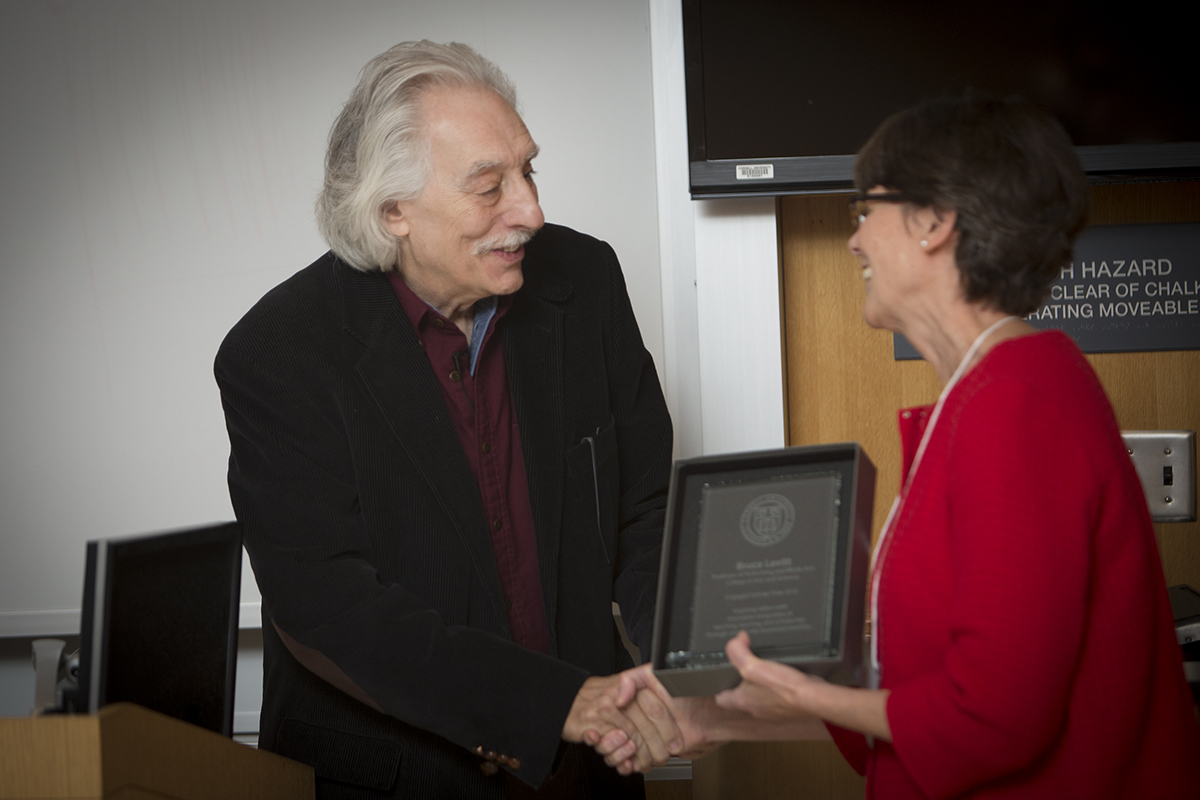Bruce Levitt sees prison theater as means of redemption
By Teagan Todd and Rebecca Jackson

What impact can theater have on the lives of incarcerated men in a maximum security prison? Bruce Levitt, Cornell professor of performing and media arts, is working with inmates to find out.
For the past six years, Levitt has served as a facilitator for the Phoenix Players Theatre Group (PPTG) at Auburn (N.Y.) Correctional Facility, a program described as “transformative” by the inmates who organize and participate in it. In his weekly visits to the prison, Levitt collaborates with the men as they express themselves through theatrical performances that range from Shakespeare to personal narratives.
Honored as the inaugural recipient of the Engaged Scholar Prize for his work with the troupe, Levitt delivered a lecture on his time with the Phoenix Players and his corresponding documentary, “Human Again,” Oct. 28 in the Physical Sciences Building.
At the beginning of the talk, Levitt encouraged the audience to close their eyes and imagine themselves at Auburn Correctional Facility.
“Now, what are you expecting … when you know, if I took you in here, that you are going to be walking with, through, around, about and among violent criminals, incarcerated?” Levitt asked. Part of the enormous impact he believes theater can have, and has already been demonstrated, on the lives of incarcerated men, he said, is its ability to change public perception of inmates and the U.S. prison system.
He said the acting techniques used by the Phoenix Players help the participants manage their emotions in day-to-day life. Participating in the group allows the men to explore the reasons for their own incarceration and to see that they are more than their crimes, Levitt said.
“They are family men, fathers, brothers, sons, husbands,” Levitt said. He challenged the audience to humanize the men, whom he introduced through photos and videos, including clips from “Human Again.” The film, now entered in several festivals, was shot by students from Cornell and Ithaca College over a period of six months, with the students traveling to the correctional facility once a week over those six months.
Following the lecture, Levitt participated in a panel discussion with Roadside Theater Artistic Director Dudley Cocke, who has taught theater at Cornell as an artist in residence; and Sandra Folasewa Oyeneyin ’14, a production coordinator for National Geographic Studios, who volunteered with the Phoenix Players as a Cornell student.
The Engaged Scholar Prize honors a distinguished faculty member who inspires students, colleagues and the community through innovative projects that integrate community engagement with scholarly activities. Levitt received numerous testimonials for the prize nomination, said Vice Provost Judith Appleton. Levitt and PPTG, which was co-founded in 2009 by inmates Michael Rhynes and Clifton Williamson, have empowered many, through “the healing, humility, humanity, openness to vulnerability and love that are at the center of this work,” wrote Gretchen Ritter ’83, the Harold Tanner Dean of Arts and Sciences.
Teagan Todd ’20 and Rebecca Jackson ’19 are writer interns for the Cornell Chronicle.
Media Contact
Get Cornell news delivered right to your inbox.
Subscribe